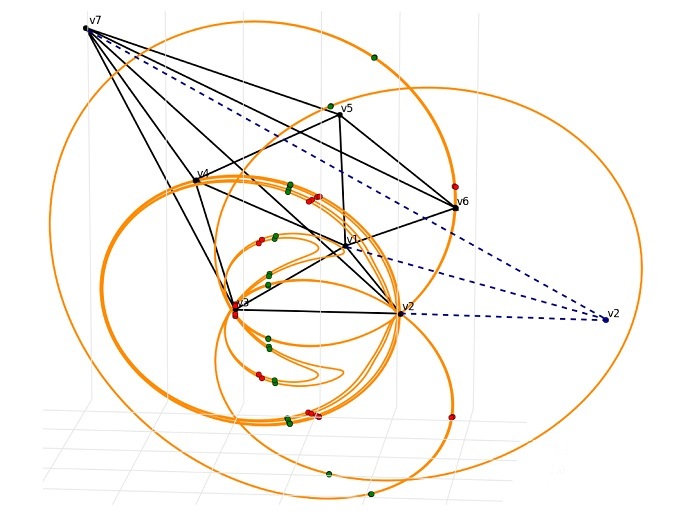Capturing the essence of 3D objects spurs innovative design and efficient manufacturing
Computers have revolutionised our ability to solve complex problems. However, exploiting their full potential necessitates lean, yet sophisticated, algorithms to capture the minimally necessary information for high accuracy without slowing computation time. EU funding of the ARCADES(opens in new window) project supported the creation of a Marie Skłodowska-Curie Innovative Training Network (ITN) that has accomplished this. Numerous advanced CAD algorithms and tools will enhance European competitiveness in critical applications. “In contrast to traditional doctoral programmes, the ITN exposes fellows to an international network of academic environments and industrial partners. This unique opportunity supported ARCADES’ development of novel methods for CAD software that integrate the latest mathematical breakthroughs,” explains ARCADES coordinator Ioannis Emiris of Athena – Research and Innovation Centre in Information, Communication and Knowledge Technologies(opens in new window) and the National and Kapodistrian University of Athens(opens in new window).
Curved surfaces and complex mobility on land and sea
In hydrodynamics and marine design, young researchers developed new isogeometric(opens in new window) modellers and solvers(opens in new window) that seamlessly and directly couple CAD models with computational mechanics and finite element analysis. A novel T-splines-based parametric modeller (TshipPM(opens in new window) for complex ship forms) integrates over 20 design parameters, and efficiently and robustly generates a comprehensive set of design alternatives of high-quality ship hulls. TshipPM is now ready for commercialisation. In addition, during a fellow’s secondment to ARCADES’ industrial partner ITI(opens in new window), decisive steps were taken to exploit the representation in ITI's principal software product, CADfix(opens in new window). Emiris adds: “The work of two fellows on CAD in maritime industries was put on the map(opens in new window), so to speak, by the EU Innovation Radar(opens in new window).” ARCADES’ fellows also developed intuitive interactive CAD tools to support architects and engineers in the design and manufacturing of curved facades(opens in new window) and freeform architectural surfaces(opens in new window) of materials including glass. Work undertaken in conjunction with ARCADES member Evolute(opens in new window) has already been implemented and adapted by several industry leaders. Emiris continues: “Our digital design framework that combines geometric modelling and optimisation, physical simulation and deep learning, surpassed our original goals. In addition to supporting design, it provides feedback relative to production costs.” Exploring the potential of modern machine learning techniques for 3D-shape learning has earned a starring role in the new ITN GRAPES(opens in new window). Yet another key area of significant advances is the study of rigid objects with prescribed degrees of freedom(opens in new window) for the design of robots, machine tools and even molecular kinematics. During a fellow’s secondment at industrial partner TopSolid(opens in new window) (formerly Missler Software), some of the methods were integrated in the flagship commercial software family ‘TopSolid’. Further, prototype software including modelling algorithms for controlling machining tools is currently being evaluated by ARCADES associated partner RISC Software(opens in new window).
Spreading the news – and the bright minds behind it
ARCADES’ outcomes have been communicated via over 250 activities including scientific presentations and publications, public lectures and science fairs. “Our fellows have become a very tight community of exceptional young scientists. Many are moving into research positions in other European countries. This international mindset will further the fellows’ careers, the CAD field and the industries it supports,” Emiris concludes. The global CAD market is expected to generate revenue of nearly USD 19 billion by 2030(opens in new window). ARCADES’ best and brightest will be key players.







